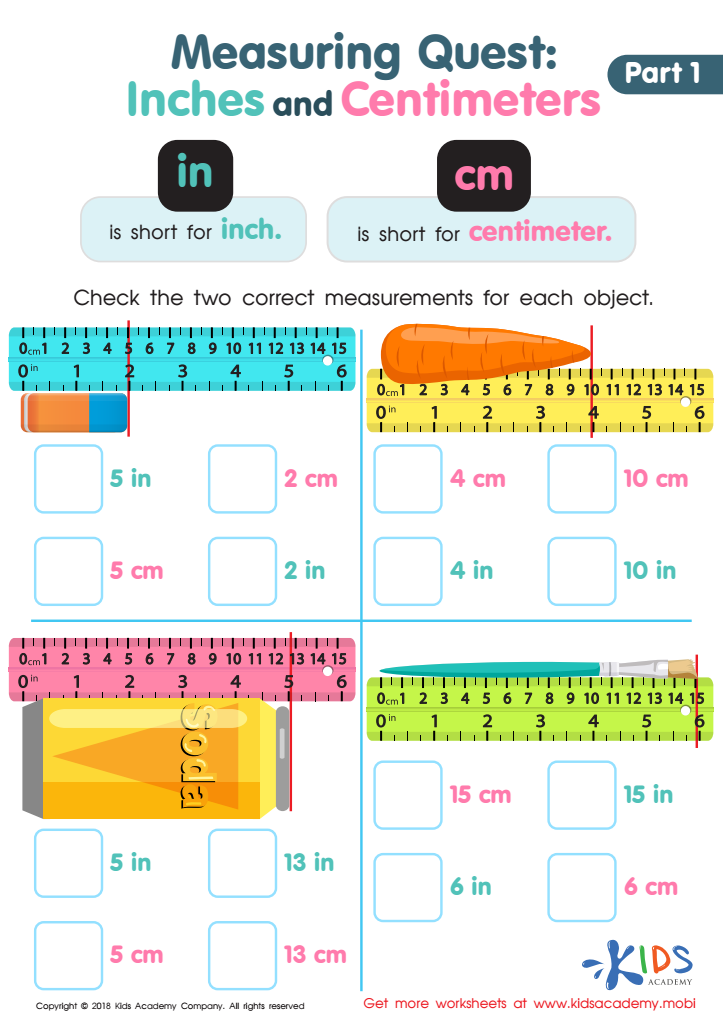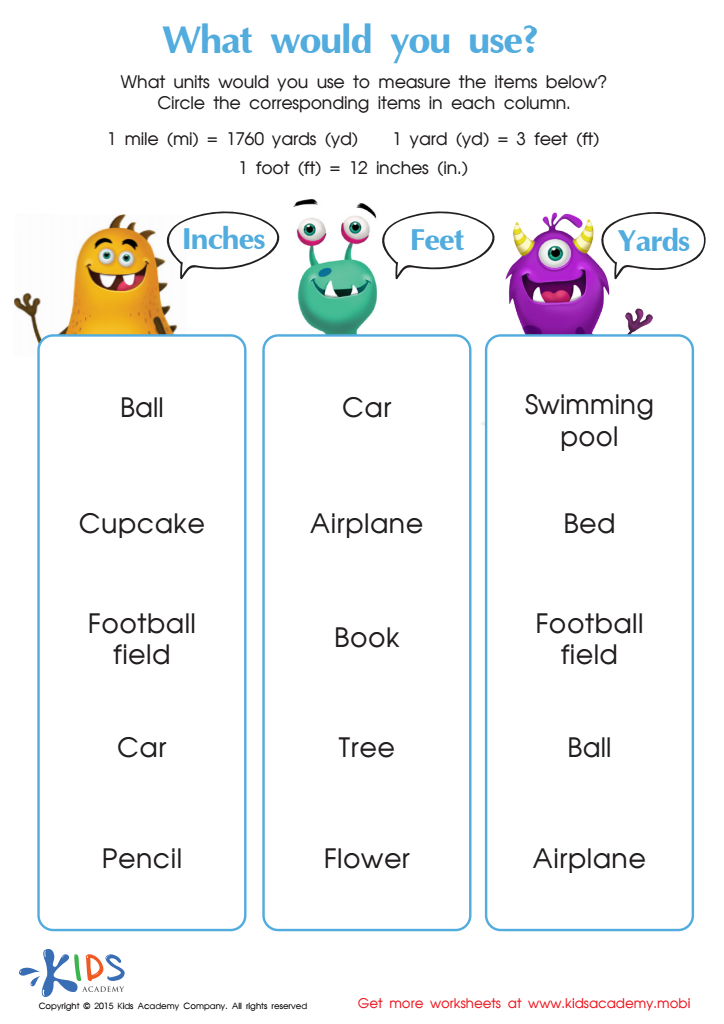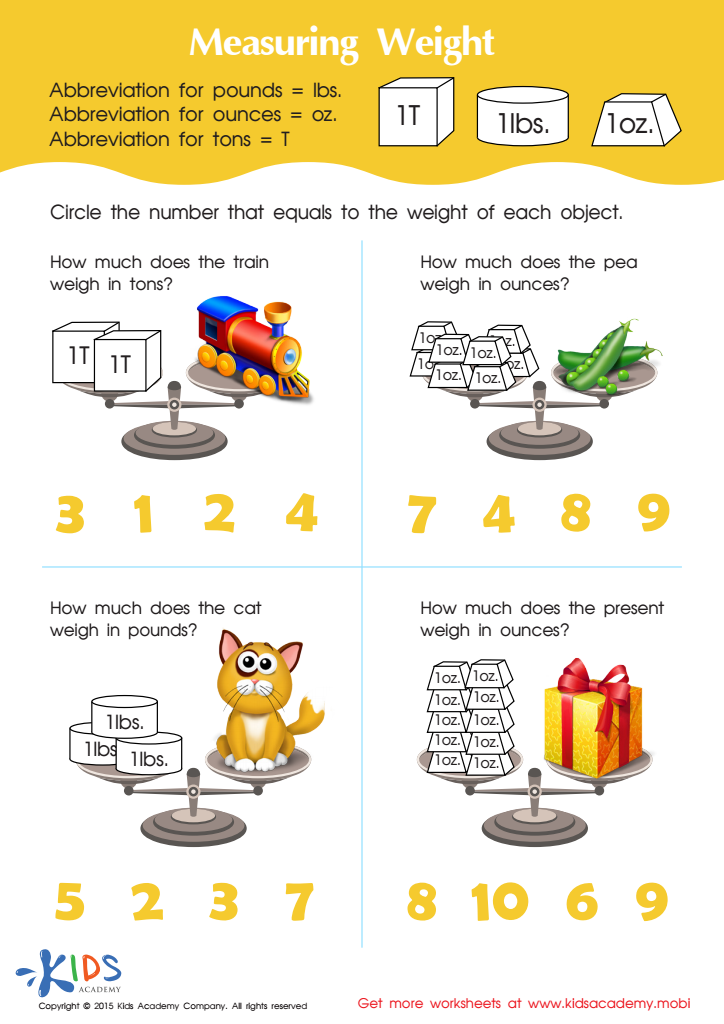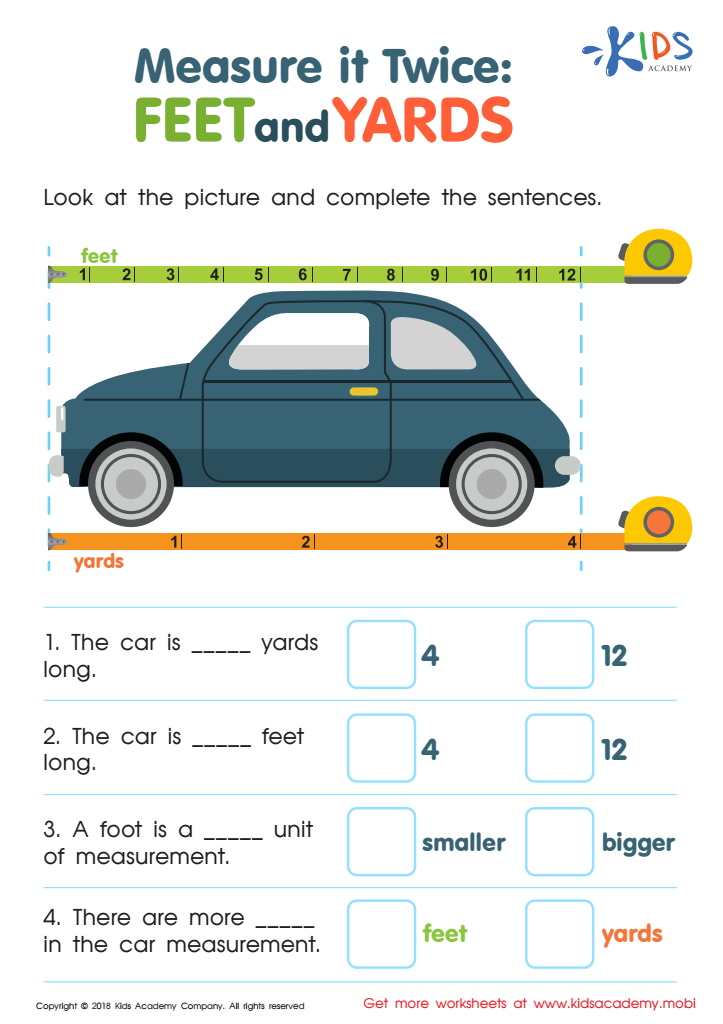Converting units Measurement Worksheets for Ages 3-7
4 filtered results
-
From - To
Discover our fun and engaging "Converting Units Measurement Worksheets for Ages 3-7," specifically designed to help young learners grasp basic measurement concepts. These expertly crafted worksheets transform learning into an enjoyable adventure, encouraging kids to improve their skills in converting various units, such as length, weight, and volume. Vibrant illustrations and easy-to-understand instructions ensure children stay motivated as they practice. Perfect for classroom use or at-home learning, our worksheets support foundational math development and boost confidence. Tailored for early-grade students, these resources provide essential practice for seamless progression in math. Start your child's measurement journey today!


Measuring Quest: Inches and Centimeters Worksheet


Learning about measuring objects in inches, feet and yards Worksheet


Measuring Weight in Ounces, Pounds and Tons Worksheet


Measure It Twice: Feet and Yards Worksheet
Teaching young children how to convert units of measurement is fundamental for several reasons. Firstly, it builds essential math skills that they will use throughout their education and daily lives. Understanding units like inches, feet, centimeters, and meters helps children develop spatial awareness and reasoning skills, vital for subjects like geometry and science.
Secondly, early exposure to unit conversion nurtures cognitive development. It encourages critical thinking and problem-solving abilities as children learn the relationships between different measures. For instance, knowing that 12 inches make a foot helps them understand grouping and partitioning, foundational concepts for addition and multiplication.
Parents and teachers also enhance a child's confidence and independence when they emphasize this skill. When children can make sense of measurements, they begin to handle simple everyday tasks more adeptly, such as following a recipe or measuring objects for a craft project.
Moreover, learning about units supports language development and vocabulary expansion by introducing terms and concepts. Words like "longer," "shorter," "heavier," or "lighter" become part of their lexicon.
In conclusion, converting units at an early age cultivates a solid mathematical foundation, sharpens cognitive abilities, and empowers children to navigate the world more effectively. It’s an investment in their overall academic and personal growth.
 Assign to My Students
Assign to My Students




















